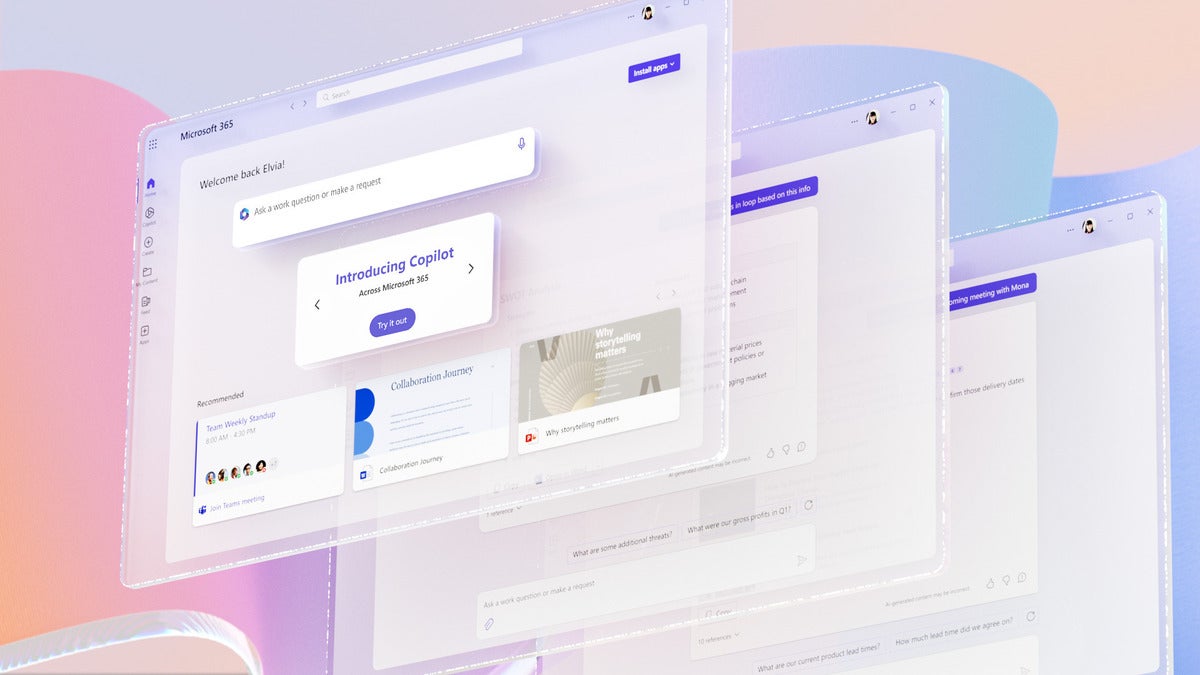Since announcing a partnership with ChatGPT creator OpenAI earlier this year, Microsoft has been deploying its Copilot generative AI assistant across its suite of Microsoft 365 business productivity and collaboration apps. Word, Outlook, Teams, Excel, PowerPoint, and a range of other applications will be connected to the AI assistant, which can automate tasks and create content — potentially saving users time and bolstering productivity.
With the M365 Copilot, Microsoft aims to create a “more usable, functional assistant” for work, said J.P. Gownder, vice president and principal analyst at Forrester’s Future of Work team. “The concept is that you’re the ‘pilot,’ but the Copilot is there to take on tasks that can make life a lot easier.”
M365 Copilot is “part of a larger movement of generative AI that will clearly change the way that we do computing,” he said, noting how the technology has already been applied to a variety of job functions — from writing content to creating code — since ChatGPT-3 launched in late 2022. Whether or not Copilot will be the catalyst for a shift in how collaboration and productivity apps work remains to be seen, he said.
So far, there have only been demos of the Microsoft tool; it’s in early testing with a limited number of customers and is expected to be generally available later this year.
Though generative AI tools have proliferated in recent months, serious questions remain about how enterprises can use the technology without risking their data.
M365 Copilot is “not fully enterprise-ready, especially in regulated industries,” said Avivah Litan, distinguished vice president analyst at Gartner. She pointed to various data privacy and security risks related to the use of large language models (LLMs), which underpin generative AI tools, as well as their tendency to “hallucinate” or provide incorrect information to users.
What is Microsoft 365 Copilot?
The M365 Copilot “system” consists of three elements: Microsoft 365 apps such as Word, Excel, and Teams, where users interact with the AI assistant; Microsoft Graph, which includes files, documents, and data across the Microsoft 365 environment; and the OpenAI models that process user prompts: OpenAI’s ChatGPT-3, ChatGPT-4, DALL-E, Codex, and Embeddings.
These models are all hosted on Microsoft’s Azure cloud environment.
Copilot is just part of Microsoft’s overall generative AI push. There are plans for Copilots tailored to Microsoft’s Dynamics 365 business apps, PowerPlatform, the company’s security suite, and its Windows operating system. Microsoft subsidiary GitHub also developed a GitHub Copilot with OpenAI a couple of years ago, essentially providing an auto-complete tool for coders.
The key component of Copilot, as with other generative AI tools, is the LLM. These language models are best thought of as a machine-learning network trained through data input/output sets;…
2023-07-02 09:42:10
Original from www.computerworld.com rnrn
